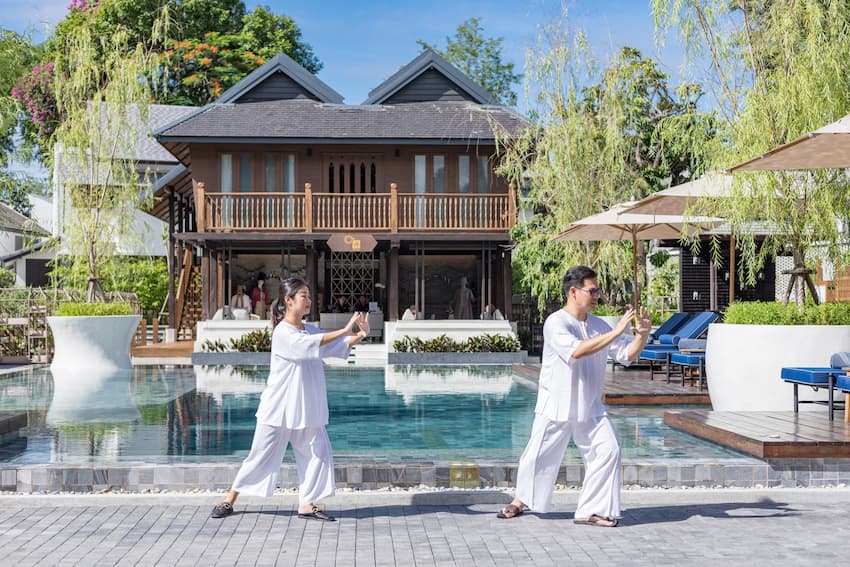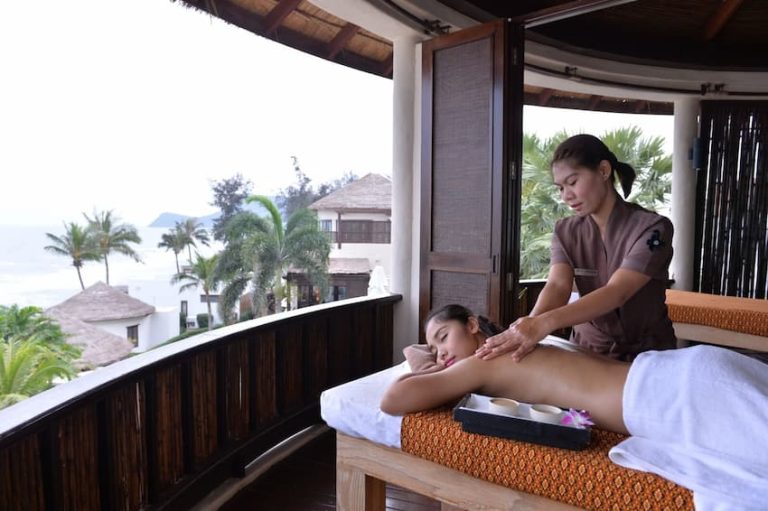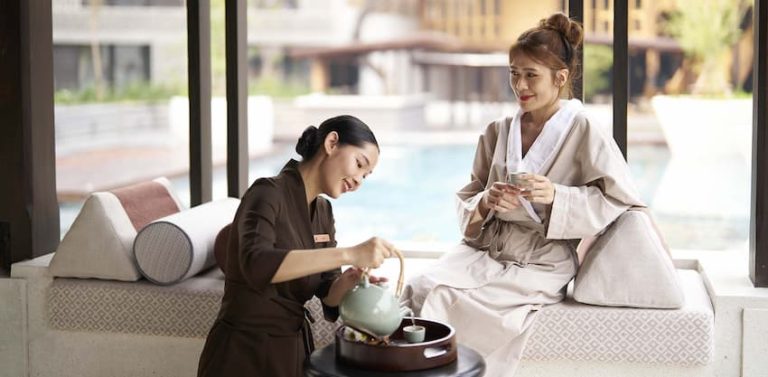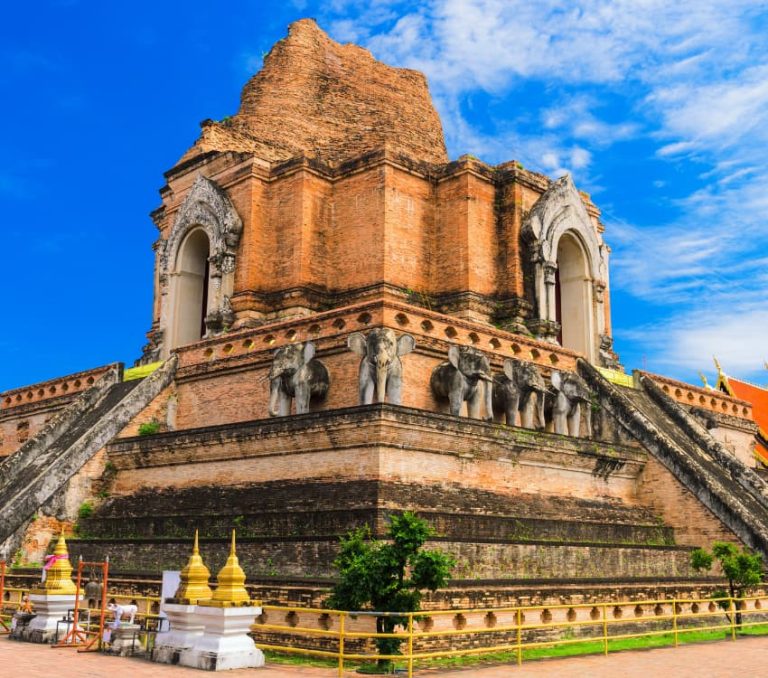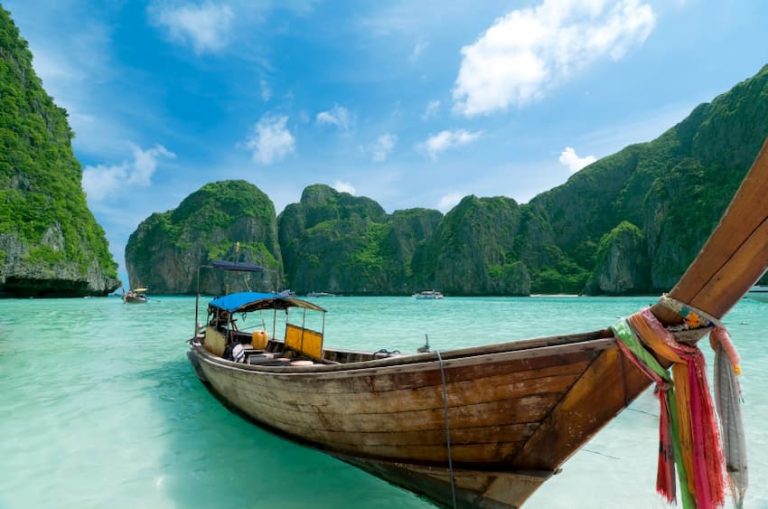Ayurveda, a traditional system of medicine rooted in the Indian subcontinent, is derived from the Sanskrit words ‘Ayur’ (life) and ‘Veda’ (science or knowledge), thus translating to ‘the science of life’. This holistic approach to health and wellbeing dates back over 5,000 years and emphasises the balance between the body, mind, and environment. It operates on the principle that individual wellness depends on a delicate equilibrium among three bodily humours or doshas: Vata, Pitta, and Kapha.
At Aleenta Resorts, integrating Ayurvedic principles into their wellness offerings is not just a practice but a commitment to enhancing the well-being of their guests. Each of Aleenta’s wellness centres and retreats, located in stunning settings across Thailand, from Phuket to Hua Hin to Chiang Mai, embraces these age-old tenets to offer a genuinely therapeutic escape. Guests are invited to explore tailored treatments that reflect Ayurvedic traditions alongside modern wellness practices.
Concepts of Ayurveda
Ayurveda, the ancient Indian medical system, is based on a profound connection between the environment and the individual. At its heart lies the theory of the Panchamahabhuta, or the five significant elements: earth, water, fire, air, and ether (space). These elements combine in various ways to form the three doshas, or biological energies, that govern all physical and mental processes in a living being.
- Earth and Water combine to form Kapha dosha, which is responsible for cohesion, stability, and lubrication.
- Fire and Water create Pitta dosha, which governs transformation and metabolism.
- Air and Ether constitute Vata dosha, which controls movement and activity.
These three doshas—Vata, Pitta, and Kapha—are present in every individual in unique proportions and responsible for physiological and mental characteristics and predisposition to specific health conditions.
Prakriti and Vikriti
Prakriti refers to the unique combination of doshas with which each person is born, often translated as the individual’s constitution. This innate constitution determines physical traits, emotional tendencies, and health condition predisposition. Understanding one’s Prakriti is crucial in Ayurveda as it forms the foundation for personalised health recommendations, including diet, exercise, and lifestyle choices.
On the other hand, Vikriti is the current state of the doshas in the body. It represents any imbalances that might have shifted from the individual’s baseline Prakriti. Stress, unhealthy diet, weather changes, and other lifestyle choices can influence these imbalances. Determining one’s Vikriti is essential for diagnosing current health issues and crafting an effective treatment plan.
Ayurvedic practices tailor health interventions based on a deep understanding of a person’s Prakriti and Vikriti. This personalised approach ensures that treatments and recommendations are most effective, aligning with the individual’s unique body type and current state of health. For instance, someone with a predominant Kapha constitution might require stimulating activities and a diet that offsets the inherent sluggishness of Kapha.
Ayurvedic Practices
Diet and Nutrition
In Ayurveda, dietary choices are paramount as they directly affect the balance of doshas within the body. Each food item possesses qualities that can balance or exacerbate a particular dosha, influencing overall health. Understanding and adapting a diet that aligns with one’s dosha can improve digestion, vitality, and well-being.
Adopting an Ayurvedic Diet Based on One’s Dosha:
- Vata (Air and Ether):
Favour warm, moist, and grounding foods to counteract Vata’s cold and dry nature. Include items like cooked grains, soups, and cooked vegetables. Avoid raw and cold foods. - Pitta (Fire and Water):
Opt for cool, hydrating, and mild foods to balance Pitta’s heat. Foods like cucumbers, sweet fruits, and green salads are ideal. Spicy, sour, and salty foods should be minimised. - Kapha (Earth and Water):
Incorporate light, dry, and warm foods to counterbalance Kapha’s heavy, moist qualities. Preferable choices include leafy greens and spicy dishes. Heavy meals and sweets are best reduced.
Herbal Healing
Ayurveda extensively uses a variety of herbs for their healing properties, each selected to balance specific doshas and treat various ailments. Common herbs include:
- Turmeric:
Known for its anti-inflammatory and antioxidant properties, it is commonly used to enhance digestion and skin health. - Ashwagandha:
Valued for its ability to reduce stress and improve energy levels, particularly beneficial for balancing Vata. - Triphala:
A staple in Ayurvedic medicine, this blend of three fruits aids in digestion and promotes internal cleansing.
Aleenta incorporates these and other herbs into their treatments, such as the Ayurvedic Herbal Massage, which uses a custom blend of oils and herbs tailored to treat individual imbalances. This herbal wisdom integration enhances their spa treatments’ therapeutic effects, promoting more profound relaxation and rejuvenation.
Yoga and Meditation
Yoga and meditation are integral to Ayurvedic practice. They aid in the harmonisation of body and mind and maintain dosha balance. These practices offer preventive and therapeutic benefits, enhancing flexibility, strength, and mental clarity.
- Yoga:
Depending on the predominant dosha, yoga sessions at Aleenta might focus on vigorous Ashtanga styles to counter Kapha, more cooling practices like Yin yoga for Pitta, or grounding and stabilising poses for Vata. - Meditation:
Meditation sessions are designed to enhance mental tranquillity and emotional stability, with guided practices that help guests connect with their inner selves, fostering a sense of calmness essential for balancing all three doshas.
Ayurvedic Treatments at Aleenta Resorts
At Aleenta Resorts, the focus on personalized wellness experiences is deeply ingrained in their philosophy. Each guest receives bespoke treatment plans that align with Ayurvedic principles. This individualised approach begins with a detailed consultation to assess the guest’s unique doshic balance, considering their Prakriti (inherent constitution) and Vikriti (current state of imbalance).
Aleenta Phuket Spa offers a diverse menu, including detoxifying body wraps and rejuvenating massages, focusing on harnessing the natural healing properties of the surrounding sea and plants.
Aleenta Hua Hin Spa specialises in treatments that incorporate local herbs and minerals, providing therapeutic massages and holistic wellness therapies tailored to restore balance and revitalize the body and mind.
Aleenta Chiang Mai Spa features a comprehensive ‘All Spa Inclusive Menu’ that includes unique therapies like the ‘Four Elements’ healing massage, which addresses the needs of each individual’s element—Earth, Water, Wind, and Fire—through customised therapeutic techniques.
The primary treatment in Ayurvedic therapy offered at Aleenta Resorts is Panchakarma. This intensive cleansing program is designed to eliminate toxins from the body, restore constitutional balance, and improve overall health and wellness. The treatment involves five primary procedures that cleanse the body: Vamana, Virechana, Nasya, Basti, and Raktamoskshana. Each treatment is tailored to the individual’s needs, considering their doshic imbalances and personal health conditions.
Panchakarma’s benefits range from improved digestion and metabolism to enhanced mental clarity and stress reduction. Removing accumulated toxins rejuvenates the body, enhances immunity, and facilitates a deeper state of relaxation and well-being.
Ayurvedic Principles in Everyday Life
Incorporating Ayurvedic principles into daily life can significantly enhance one’s health and well-being. These principles provide a framework for living in harmony with nature and understanding the needs of one’s body and mind.
Simple Ways to Incorporate Ayurvedic Principles at Home:
- Morning Routine: Start the day with a glass of warm water, possibly with a squeeze of fresh lemon, to stimulate digestion and cleanse the system.
- Diet: Focus on eating according to your dosha. To balance the doshas, include six tastes (sweet, sour, salty, bitter, pungent, astringent) in each meal.
- Mindful Eating: Eat in a calm environment, focus on the food, chew thoroughly, and avoid overeating to improve digestion and satisfaction.
- Sleep Hygiene: Go to bed and wake up at consistent times. Aim for a bedtime routine that allows you to unwind and ensures a refreshing night’s sleep.
- Self-Massage: Practice Abhyanga, or self-massage with oils suited to your dosha, to nourish the skin, stimulate internal organs, and enhance relaxation.
Regular visits to Ayurvedic spas can be transformative, offering structured health regimens that are difficult to maintain daily. These visits provide:
- Professional Assessments: Getting professional advice on your current dosha balances and imbalances.
- Tailored Treatments: Receiving treatments like Panchakarma, which detoxifies the body, helps to reset physically and mentally.
- Learning Opportunities: Learning about personal health and wellness strategies that can be integrated at home.
- Stress Management: Regular therapeutic sessions help manage stress and maintain mental health.
Ayurveda for Lifelong Wellness
Applying Ayurvedic principles can lead to significant improvements in both physical health and mental well-being. By aligning our lifestyles with these time-tested practices, we can foster a natural state of health that supports vitality, emotional balance, and longevity.
Aleenta Resorts, with its deeply ingrained philosophy of wellness, provides an ideal setting for immersing oneself in the restorative powers of Ayurveda. Each resort offers a unique blend of traditional Ayurvedic treatments, expertly tailored to meet each guest’s individual needs, ensuring a holistic approach to health and rejuvenation.
We invite you to experience the transformative effects of Ayurveda at Aleenta Resorts. Whether you are wanting a retreat to detoxify and rejuvenate or learning more about integrating Ayurvedic practices into your daily life, Aleenta offers a sanctuary where you can explore the depths of these ancient wellness practices.
Related Articles
- Ayurvedic Principles of Thai Massage
- Thai Yoga Massage for Holistic Health & Wellness
- Lanna Massage for Balancing Mind, Body, and Spirit
- Embracing Wellness with Thai Healing Treatments in Chiang Mai
- Shirobhyanga: Traditional Head Massage
Aleenta Retreat
Chiang Mai
Chiang Mai
189 Soi Ban Mai Lang Mo 18,
Suthep, Muang Chiang Mai District,
Chiang Mai 50200
T: +66 (0)52 090 333

